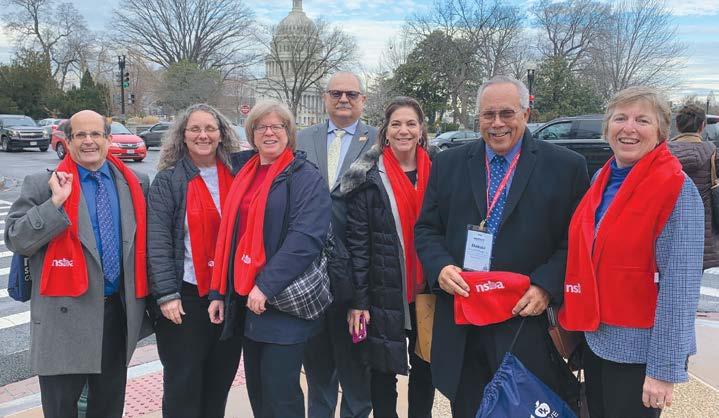
4 minute read
Pick your battles. Often others just want to vent and will feel validated by your listening
Understanding Connecticut’s FOIA School Safety, Security Issues and the FOIA
Mark J. Sommaruga, Esq. Pullman & Comley, LLC
Advertisement
We live in unfortunately perilous times. Fortunately, as you will see below, Connecticut’s Freedom of Information Act [“FOIA”] contains common sense protections that balance the public’s “right to know” with concerns about safeguarding sensitive discussions (and documents) about school security measures.
Can the school board meet in executive session to discuss the school district’s security plan and strategy? Generally, yes. The FOIA permits executive session for discussions of “matters concerning security strategy or the deployment of security personnel, or devices affecting public security.” A discussion of the layout of the district’s security system, specifically the best types of security devices to use to secure a building and where these devices should be located, would be covered by this executive session provision, as would discussions of strategy concerning the use of security guards and/or school resource officers.
Can we withhold from disclosure the actual security/safety plan and strategy? The FOIA contains an exception that exempts from disclosure documents where there are “reasonable grounds” to believe that disclosure may result in a “safety risk”. Specifically, the relevant FOIA provision exempts from disclosure:
Records when there are reasonable grounds to believe disclosure may result in a safety risk, including the risk of harm to any person, any government-owned or leased institution or facility . . . except that such records shall be disclosed to a law enforcement agency upon the request of the law enforcement agency. Such reasonable grounds shall be determined . . . by the Commissioner of Emergency Services and Public Protection, after consultation with the chief executive officer of a municipal, district or regional agency, with respect to records concerning such agency
This FOIA provision further lists the following examples of possibly exempt security related records:
2. Engineering and architectural drawings; 3. Operational specifications of security systems, except that a general description and the cost and quality of such systems could be disclosed;
4. Training manuals that describe security procedures, emergency plans or security equipment;
5. Internal security audits; requested information would result in the public disclosure of information about a school’s security weaknesses and thus would pose a safety threat to students and staff in those facilities. Rejecting a claim that the information sought was just “financial information”, the FOIC noted that the schools applying for the grants must provide security assessment information and identify shortcomings in their secu
6. Minutes or records of meetings, or portions of such minutes or records, that contain or reveal information relating to security or other records otherwise exempt from disclosure;
7. Logs or other documents that contain information on the movement or assignment of security personnel; and rity programs that they are seeking to mitigate.
The FOIC cited to testimony indicating that disclosure of the requested information could allow someone with criminal intent to target these schools, knowing that they had security lapses requiring state assistance to rectify. The FOIC found that the determination that the disclosure would create a safety risk was arrived in good faith and not frivolous or unfounded.
So how far can schools go in refusing to disclose security plans and strategies? The FOIC appears to be aware that there are times that the release of information will aid those seeking to do harm. While conclusory information that provides a general description of a security system – as well as its cost and quality – may have to be disclosed, specific information relating to strategy and the deployment of security personnel and the specifications of security equipment and systems should be exempt from disclosure. From a practical perspective, school boards must balance the need to provide assurance to the public about the strength of their security measures without releasing too much information that could be used by potential wrongdoers.
Attorney Sommaruga is the author of “Understanding Connecticut’s Freedom of Information Act” (5 th Edition 2018).
8. Emergency plans and emergency preparedness, response, recovery and mitigation plans, including plans provided by a person to a state agency or a local emergency management agency or official.
As noted in the above FOIA exemption, school districts and municipalities may have to seek guidance from the state’s Department of Emergency Services and Public Protection [“DESPP”] before refusing to disclose security records. However, the Freedom of Information Commission [“FOIC”] and the courts will generally defer to the state’s safety risk assessment unless it is frivolous, patently unfounded, or in bad faith.
By way of example, the FOIC recently upheld a refusal to disclose records showing the names of schools receiving funding under the School Security Competitive Grant Program, along with the dollar amount that each school had been given during each fiscal year since the program was started. Cornelius v. Commissioner, DESPP, #FIC 2019-0270 (January 8, 2020).
The state opined that release of the








